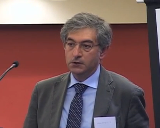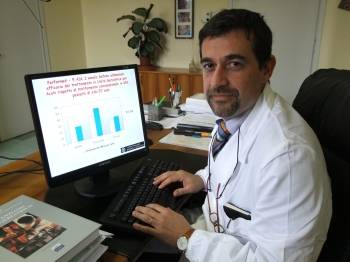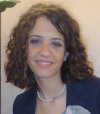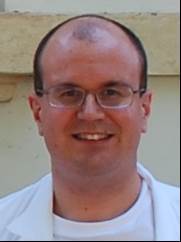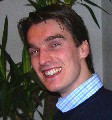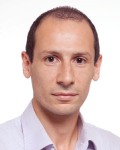Studiare
In questa sezione è possibile reperire le informazioni riguardanti l'organizzazione pratica del corso, lo svolgimento delle attività didattiche, le opportunità formative e i contatti utili durante tutto il percorso di studi, fino al conseguimento del titolo finale.
Calendario accademico
Il calendario accademico riporta le scadenze, gli adempimenti e i periodi rilevanti per la componente studentesca, personale docente e personale dell'Università. Sono inoltre indicate le festività e le chiusure ufficiali dell'Ateneo.
L’anno accademico inizia il 1° ottobre e termina il 30 settembre dell'anno successivo.
Calendario didattico
Il calendario didattico indica i periodi di svolgimento delle attività formative, di sessioni d'esami, di laurea e di chiusura per le festività.
| Periodo | Dal | Al |
|---|---|---|
| 1° e 2° SEMESTRE (corsi annuali) LM PROF. SAN. 23-24 | 2-ott-2023 | 30-set-2024 |
| 1° SEMESTRE LM PROF. SAN. 23-24 | 2-ott-2023 | 28-mar-2024 |
| 2° SEMESTRE LM PROF. SAN. 23-24 | 29-mar-2024 | 30-set-2024 |
Calendario esami
Per consultazione e iscrizione agli appelli d'esame visita il sistema ESSE3. Per problemi inerenti allo smarrimento della password di accesso ai servizi on-line si prega di rivolgersi al supporto informatico della Scuola o al servizio recupero credenziali
Per dubbi o domande leggi le risposte alle domande più frequenti F.A.Q. Iscrizione Esami
Docenti
 francisca.anayacintas@univr.it
francisca.anayacintas@univr.it
 elena.bravi@apss.tn.it
elena.bravi@apss.tn.it
 arianna.costantini@univr.it
arianna.costantini@univr.it
 jessica.longhini@univr.it
jessica.longhini@univr.it
 0461902665
0461902665
 loredana.pancheri@univr.it
loredana.pancheri@univr.it
 0461281350
0461281350
Piano Didattico
Il piano didattico è l'elenco degli insegnamenti e delle altre attività formative che devono essere sostenute nel corso della propria carriera universitaria.
Selezionare il piano didattico in base all'anno accademico di iscrizione.
1° Anno
| Insegnamenti | Crediti | TAF | SSD |
|---|
2° Anno Sarà attivato nell'A.A. 2024/2025
| Insegnamenti | Crediti | TAF | SSD |
|---|
Laboratori professionali (secondo anno)
| Insegnamenti | Crediti | TAF | SSD |
|---|
| Insegnamenti | Crediti | TAF | SSD |
|---|
Laboratori professionali (secondo anno)
Legenda | Tipo Attività Formativa (TAF)
TAF (Tipologia Attività Formativa) Tutti gli insegnamenti e le attività sono classificate in diversi tipi di attività formativa, indicati da una lettera.
Metodologie di teamworking e di tutorship nelle reti professionali (2023/2024)
Codice insegnamento
4S010955
Crediti
8
Coordinatore
Lingua di erogazione
Italiano
Corsi Singoli
Non AutorizzatoL'insegnamento è organizzato come segue:
Obiettivi di apprendimento
L’ insegnamento mira a sviluppare competenze nella gestione del cambiamento per promuovere l’innovazione e gli standard di sicurezza e qualità e creare ambienti di apprendimento e teamworking; a fornire i riferimenti concettuali e i principali metodi e strumenti per promuovere e valorizzare l’apprendimento dall’esperienza come motore per la formazione e lo sviluppo di competenze professionali nell’ambito della formazione sanitaria di base ed avanzata e nell’ambito delle organizzazioni sanitarie. Modulo MODELLI DI APPRENDIMENTO DALL'ESPERIENZA: Obiettivi formativi: approfondire i modelli dell’apprendimento finalizzati allo sviluppo di competenze professionali. Acquisire strumenti e competenze per l’apprendimento riflessivo. Modulo METODOLOGIE TUTORIALI E DI COACHING: Obiettivi formativi: sviluppare competenze per facilitare l’apprendimento dall’esperienza per la formazione e lo sviluppo professionale e per applicare metodi e strumenti della tutorship come relazione che facilita l’apprendimento: il setting ed il dispositivo formativo, porre domande, fornire feedback, briefing e debriefing, consulenza, piani di apprendimento nella formazione di base e continua e diari riflessivi. La progettazione di interventi educativi/didattici (formazione continua): fondamenti teorici, paradigmi e funzioni della valutazione formativa e certificativa di competenze nell’organizzazione. Modulo GESTIONE DELLE RISORSE UMANE: Obiettivi formativi: fornire un quadro di conoscenze del diritto del lavoro del pubblico impiego, con particolare riferimento al comparto sanità. Fornire gli strumenti utili per orientarsi all’interno delle regole del diritto del lavoro in questo comparto. Modulo STRUMENTI DI CHANGE MANAGEMENT: Obiettivi formativi: acquisire abilità/competenze per promuovere, facilitare e accompagnare processi di cambiamento, riconoscendo la dimensione soggettiva e le variabili emotive che essi richiamano. Approfondire i diversi stili di leadership con particolare riferimento alla gestione dei conflitti.
Prerequisiti e nozioni di base
Caratteristiche della relazione professionale. Modelli di comunicazione.
Differenze concettuali tra informazione, educazione, insegnamento, apprendimento.
Concetti base di Diritto
Bibliografia
Criteri di composizione del voto finale
il voto finale origina dalla media ponderata dei voti ricevuti nei singoli moduli. E' necessario aver raggiunto un livello sufficiente (18/30) in tutti i moduli.
Prospettive
Avvisi degli insegnamenti e del corso di studio
Per la comunità studentesca
Se sei già iscritta/o a un corso di studio, puoi consultare tutti gli avvisi relativi al tuo corso di studi nella tua area riservata MyUnivr.
In questo portale potrai visualizzare informazioni, risorse e servizi utili che riguardano la tua carriera universitaria (libretto online, gestione della carriera Esse3, corsi e-learning, email istituzionale, modulistica di segreteria, procedure amministrative, ecc.).
Entra in MyUnivr con le tue credenziali GIA: solo così potrai ricevere notifica di tutti gli avvisi dei tuoi docenti e della tua segreteria via mail e a breve anche tramite l'app Univr.
Orario lezioni
Ultimo aggiornamento orario lezioni
Documenti
| Titolo | Info File |
|---|---|
|
|
pdf, it, 136 KB, 19/01/24 |
|
|
pdf, it, 530 KB, 18/04/24 |
|
|
pdf, it, 622 KB, 18/04/24 |
|
|
pdf, it, 634 KB, 22/08/23 |
|
|
pdf, it, 1453 KB, 07/02/24 |
Appelli d'esame
COMUNICATO UNITA' DI CRISI (agg. 2/05/2022)
Potranno chiedere di fare l’esame di profitto o di laurea a distanza solo le studentesse e gli studenti in isolamento in quanto positivi al SARS-CoV-2. La richiesta dovrà essere fatta inviando al docente il “Modulo per la richiesta di esame o sessione di laurea o diploma a distanza_rev.02/05/2022”
Guida ai programmi
.
Documenti
| Titolo | Info File |
|---|---|
|
|
pdf, it, 1515 KB, 14/03/24 |
Attività di tirocinio e seminariali
Guida attività seminariali e tirocinio
Documenti
| Titolo | Info File |
|---|---|
|
|
octet-stream, it, 14 KB, 06/11/23 |
|
|
octet-stream, it, 15 KB, 06/11/23 |
|
|
pdf, it, 1280 KB, 06/11/23 |
Prova Finale
Per essere ammessi alla prova finale occorre avere conseguito tutti i crediti nelle attività formative previste dal piano degli studi, compresi quelli relativi all’attività di tirocinio. La prova finale consiste nella redazione e dissertazione, davanti ad una Commissione di esame, di una tesi elaborata in modo originale sulla base di un lavoro di natura sperimentale o teorico-applicativa riguardante l’approfondimento di aspetti manageriali, di ricerca, formativi e di metodologie professionali avanzate specifiche del proprio ambito professionale. Lo studente avrà la supervisione di un docente del Corso di Laurea, detto Relatore, ed eventuali correlatori anche esterni al Corso di Laurea. Scopo della tesi è quello di impegnare lo studente in un lavoro di formalizzazione, progettazione e di ricerca, che contribuisca sostanzialmente al completamento della sua formazione professionale e scientifica. Il contenuto della tesi deve essere inerente a tematiche o discipline strettamente correlate agli obiettivi della Laurea Magistrale. La valutazione della tesi sarà basata sui seguenti criteri: livello di approfondimento del lavoro svolto e rigore scientifico, contributo critico del laureando, accuratezza della metodologia adottata, significatività della tematica sviluppata. Il punteggio finale di Laurea è espresso in centodecimi con eventuale lode e viene formato dalla somma della media ponderata rapportata a 110 dei voti conseguiti negli esami di profitto, con la valutazione ottenuta nella discussione della Tesi. La commissione di Laurea potrà attribuire ulteriori punti anche in base a: a. presenza di eventuali lodi ottenute negli esami sostenuti; b. stage presso Servizi Sanitari di altri Paesi fino a 1 punto aggiuntivo; c. laurea entro i termini della durata normale del corso 1 punto aggiuntivo. Il punteggio minimo per il superamento dell'esame finale è di 66/110. Qualora la somma finale raggiunga 110/110, la Commissione di Laurea può decidere l'attribuzione della lode, se il parere è unanime. Il Collegio Didattico pubblica annualmente sul sito del Corso di studio le linee guida per la stesura e le indicazioni dei vari adempimenti di natura amministrativa e organizzativa.
Area riservata studenti
Gestione carriere
Stage
In questa sezione è possibile reperire le informazioni riguardanti l'organizzazione pratica del corso, lo svolgimento delle attività didattiche, le opportunità formative e i contatti utili durante tutto il percorso di studi, fino al conseguimento del titolo finale.
